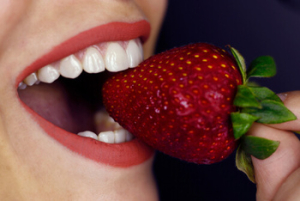Foods To Prevent Glaucoma: Your Guide To Eye Health And Well-being
Glaucoma is one major cause of vision loss worldwide, particularly affecting older individuals. While glaucoma often requires medical intervention, a healthy diet may play an integral role in reducing the risk of developing glaucoma and helping manage the condition. In this article, we’ll discuss foods to prevent glaucoma and foods to avoid due to their potential to elevate IOP. By making strategic dietary choices, glaucoma patients can support their eye health and maintain overall well-being.
Foods To Prevent Glaucoma: Key Nutrients For Eye Health
Consuming foods supporting eye health is important to reduce the risk of developing glaucoma. Below are some foods to help manage the condition by maintaining normal blood pressure:
Leafy Green Vegetables
Leafy greens, like spinach, kale, and collard greens, are rich in lutein and zeaxanthin, which are antioxidants that protect the eyes from damage. They may also reduce the risk of developing glaucoma.
Eat leafy greens in your daily diet to help boost blood flow to the optic nerve and lower IOP.
Oily Fish
Oily fish like salmon, mackerel, and sardines are excellent sources of omega-3 fatty acids, which have been linked to promoting healthy blood circulation.
Improved blood flow to the eyes is crucial for maintaining optimum health and preventing optic nerve damage. Omega-3 fatty acids also help manage cholesterol levels, reducing the risk of heart disease, often linked to higher glaucoma risk.
Fruits Rich In Vitamin C
Vitamin C is a powerful antioxidant that supports healthy blood vessels and improves blood flow. Integrating fruits packed with vitamin C, such as oranges, strawberries, and kiwi, can help lower intraocular pressure and minimise the risk of developing glaucoma.
Nuts And Seeds
Nuts and seeds are both rich in vitamin E, another essential nutrient for eye health. Vitamin E helps protect the eyes from oxidative stress, which can contribute to glaucoma progression. Almonds, sunflower seeds, and flaxseeds are excellent options for your diet.
Carrots And Other Orange Vegetables
Carrots are filled with beta-carotene, which the body converts into vitamin A, a key nutrient for eye health. Including carrots, sweet potatoes, and pumpkin in your diet helps support the optic nerve function and reduces the risk of vision problems.
Foods To Avoid For Glaucoma Management
While following certain healthy dietary guidelines, like eating leafy greens, can benefit glaucoma patients, others may raise IOP or worsen glaucoma risk factors. Here are certain foods that should be limited or avoided:
Foods High In Saturated Fats
 Diets high in saturated fats may increase cholesterol levels, leading to poor circulation and higher IOP. Limiting fatty cuts of meat, butter, and fried foods is important for managing glaucoma.
Diets high in saturated fats may increase cholesterol levels, leading to poor circulation and higher IOP. Limiting fatty cuts of meat, butter, and fried foods is important for managing glaucoma.
Trans Fatty Acids
Trans fatty acids, mainly found in processed foods, can raise cholesterol levels and contribute to poor blood circulation. These unhealthy fats may exacerbate blood pressure abnormalities and increase glaucoma risk.
Caffeine Consumption
Excessive caffeine consumption may cause a temporary spike in IOP. While moderate amounts of caffeine are typically safe, glaucoma patients should avoid consuming large quantities of coffee or energy drinks.
High-Sugar Foods
A diet high in refined sugars may lead to blood glucose concentrations that may negatively affect eye health. Moderating sugary foods and drinks is essential for glaucoma management.
Alcohol Consumption
Excessive alcohol consumption may increase IOP and the risk of optic nerve damage. Glaucoma patients should be cautious about alcohol intake and avoid heavy drinking.
Other Ways To Manage Glaucoma Through Diet And Lifestyle
In addition to consuming foods to prevent glaucoma, several other lifestyle strategies can help manage the condition:
Maintain A Healthy Weight
Being overweight may increase your chances of developing glaucoma. A balanced diet that integrates nutrient-dense foods and practising healthy caloric restriction can help maintain a healthy weight and lower the risk of glaucoma progression.
Exercise Regularly
Regular exercise promotes healthy blood circulation and can help lower IOP. Walking, swimming, or cycling greatly improves overall health and supports eye health.
Stay Hydrated
Drinking plenty of water is good for maintaining healthy eye pressure. Staying hydrated supports overall bodily functions and prevents the thickening of blood, which can impair its circulation in the eye.
Consider Glaucoma Treatments
Several management strategies are available for glaucoma, including:
- Minimally Invasive Glaucoma Surgery (MIGS): This surgery involves small incisions to improve fluid drainage and lower IOP with fewer risks and quicker recovery compared to traditional surgery. It’s suitable for mild to moderate glaucoma and can often be combined with cataract surgery.
- Selective Laser Trabeculoplasty (SLT): This laser treatment enhances drainage in the eye, effectively reducing IOP. SLT is minimally invasive and can be repeated if needed, making it a great option for patients who require more than just eye drops.
- Anti-Glaucoma Eye Drops: These are often the first line of treatment for glaucoma. They work by decreasing fluid production or improving drainage. Consistent use is essential for preventing vision loss.
Frequently Asked Questions
Can I still eat dark chocolate if I have glaucoma?
Yes, dark chocolate in moderation is fine for glaucoma patients. In fact, dark chocolate contains antioxidants that may benefit your overall health. However, it’s best to avoid overindulging, especially in high-sugar varieties.
What are the common types of glaucoma?
The most known types of glaucoma include primary open-angle glaucoma, which progresses slowly and often without symptoms, and angle-closure glaucoma, which can cause sudden symptoms and requires immediate treatment.
Can glaucoma be cured?
Currently, there is no cure for glaucoma. However, it can be effectively managed with medication, surgery, and lifestyle changes, helping to preserve vision and prevent further damage.
Final Reflections: Staying Ahead Of Glaucoma
 Managing glaucoma requires a combination of medical treatments, regular monitoring, and lifestyle adjustments. While there are no single foods to prevent glaucoma, a healthy diet rich in leafy green vegetables, fruits, nuts, and omega-3 fatty acids can help reduce your risk and support better eye health.
Managing glaucoma requires a combination of medical treatments, regular monitoring, and lifestyle adjustments. While there are no single foods to prevent glaucoma, a healthy diet rich in leafy green vegetables, fruits, nuts, and omega-3 fatty acids can help reduce your risk and support better eye health.
At the same time, it’s important to limit foods that can raise IOP, such as those high in saturated fats, trans fats, and excessive caffeine.
Making thoughtful choices about your diet and lifestyle can contribute to better glaucoma management and a healthier life.
If you have questions about managing glaucoma or want to learn more about how dietary changes and treatments can support your eye health, don’t hesitate to reach out. Our team of experienced professionals in Melbourne is here to provide you with the guidance and support you need.
Contact Mornington Peninsula Eye Clinic today at (03) 9070 3580 to learn more! Your vision deserves the best possible care.
Note: Any surgical or invasive procedure carries risks. Before proceeding, you should seek a second opinion from an appropriately qualified health practitioner.
Sources:
Boyd K 2024. 10 Things To Do Today To Prevent Vision Loss From Glaucoma Turbert D, editor. American Academy of Ophthalmology. Available at: https://www.aao.org/eye-health/tips-prevention/easy-steps-to-prevent-vision-loss-from-glaucoma [Accessed October 17, 2024]
NHS 2021. Glaucoma Treatment. NHS. Available at: https://www.nhs.uk/conditions/glaucoma/treatments/ [Accessed October 17, 2024]
Richards L 2023. What to know about foods to avoid with glaucoma. Medical News Today. Available at: https://www.medicalnewstoday.com/articles/foods-to-avoid-if-you-have-glaucoma [Accessed October 17, 2024]
Taylor M 2023. 11 Tips for Eating for Glaucoma. HealthCentral. Available at: https://www.healthcentral.com/slideshow/glaucoma-diet-nutrition-tips [Accessed October 17, 2024]






Leave a Reply
Want to join the discussion?Feel free to contribute!